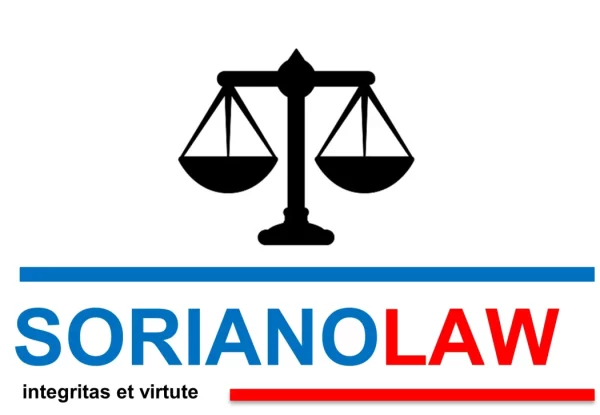Renting is a huge part of life for millions of Filipinos. Whether you’re a student just starting college, a young professional building your career, or a family putting away savings for your dream home, the rental market is a big deal in the Philippines. According to the Philippine Statistics Authority’s 2020 Census, about 2.3 million households—roughly 10% of the population—are renters. That’s a lot of people! In Metro Manila, one in four households is a renter. In Calabarzon, where cities are growing fast and jobs are popping up, nearly 8% of homes are rentals—and that number keeps going up as more people move in for work and new opportunities.
Why do so many people choose to rent? Flexibility is a big reason. Life in the city can move at lightning speed and buying a home can feel out of reach with high prices and constant change. Renting lets you move closer to your job, your school, or your family without being tied down. But while renting can be super convenient, it’s not always smooth sailing. Both tenants and landlords face their own set of challenges.
Philippine Statistics Authority. (2023, August 9). 2.86 million Filipino households rent their homes (2020 Census results). Manila Standard. https://manilastandard.net/?p=314358595
A worrying fact
Here’s an interesting (and maybe worrying) fact: every year, about 8–12% of tenants across the country fall behind on their rent, and the numbers are even higher in busy regions like Calabarzon. It’s tough—rising costs, surprise expenses, and unstable income can make it hard for renters to keep up. On the flip side, landlords depend on rent to keep things running smoothly. Late payments can throw a wrench in their plans, making it harder to maintain properties or invest in improvements.
Things can get even trickier because many rental deals in the Philippines are done informally. Instead of signing a formal contract, people often just agree verbally and rely on trust. While that can feel friendly, it can also lead to big headaches—like disagreements over rent, who’s responsible for repairs, or what to do if the property changes hands. Plus, without clear paperwork, it’s easy for misunderstandings to pop up, especially if rent rates are old or unclear.
Tenants often deal with sudden rent increases, threats of eviction for small issues or late payments, and sometimes slow or poor maintenance. Landlords, meanwhile, have their own struggles—like property damage, unpaid rent, or tenants who won’t follow the rules. These issues can cause a lot of stress and make things tense on both sides.
Law protects both landlords and tenants
So, what does the law actually say about renting in the Philippines? There are clear rules to protect both landlords and tenants.
Tenants need to pay rent on time and take good care of the property. They should use the place only as intended—usually as a home—and avoid anything that could damage it or bother their neighbors. If something breaks or needs fixing, tenants should tell the landlord right away. It’s also important to keep the place clean and follow the rules in the lease, like whether pets are allowed or if you can sublet. If tenants want to end the lease early, they usually must give proper notice or pay any required fees.
Tenants shouldn’t make changes—like painting or installing things—without the landlord’s okay. And landlords have the right to check the property or make repairs, if they give advance notice.
Sticking to these responsibilities helps keep things smooth between both sides.
On top of that, the Rent Control Act of 2009 (RA 9653) limits how much rent can go up each year, so tenants aren’t hit with sudden, steep increases. Landlords also can’t just kick tenants out without cause—they need to give a written notice first and follow the legal process.
Even if the rental agreement is just a handshake or a verbal promise, it’s still legally binding. If tenants break the rules, they could face eviction or extra charges. But landlords have to stick to the law too: they can’t lock tenants out, harass them, or take their things without a court order. If there’s a serious problem that can’t be worked out, landlords must go through the courts to resolve it fairly. These rules make sure everyone’s rights are respected and prevent problems from turning ugly.
Ballesteros, M. M. (2004). Rental Housing for Urban Low-Income Households in the Philippines (PIDS Discussion Paper No. 2004-47). Philippine Institute for Development Studies
Santos, in The Lived Experience of Lessors (Owner) in Managing Difficult Tenants. (2025). Multidisciplinary Journals. https://multidisciplinaryjournals.com/wp-content/uploads/2025/02/Full-Paper-The-Lived-Experience-of-Lessors-Owner-in-Managing-Difficult-Tenants.pdf
If you run into trouble
At the end of the day, the law is there to keep things fair, so both sides feel secure. If you’re a tenant or a landlord, the best way to avoid problems is to keep communication open, get things in writing, and know your rights. And if you run into trouble—a dispute, threat of eviction, or just confusion about your situation—it’s smart to talk to a legal expert. Z. Soriano & Associates Law Office knows the ins and outs of rental issues and can help you draft agreements, negotiate, or handle any legal bumps in the road. Don’t hesitate to reach out on Facebook or call (63) 936 979 2296 or (63) 908 867 6601 for help. Protecting your rights in the rental world is crucial, and having the right support makes all the difference.
Important Note: This article is intended solely for educational and informational purposes. It does not constitute legal advice. For specific legal concerns, professional legal counsel should be consulted.
